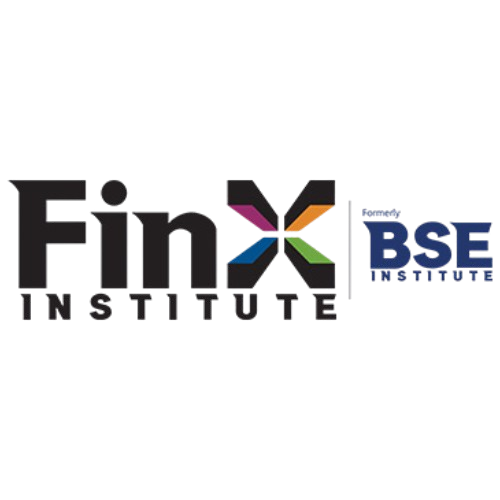The Bachelor of Management Studies (BMS) in Capital Markets is a specialized four-
year undergraduate program offered by BSE Institute Ltd., in collaboration with the
University of Mumbai. This course is designed for students with a keen interest in finance
and capital markets, equipping them with a solid foundation in financial systems, investment
strategies, and market regulations.
With a curriculum aligned with the New Education Policy 2020, this program ensures
students receive industry-relevant knowledge and practical exposure through internships, live
projects, and simulation-based training.
Let’s explore the semester-wise breakdown of the BMS in Capital Markets syllabus at BSE
Institute Ltd.
Semester-Wise Curriculum Overview
Semester I: Fundamentals of Financial Markets
- Introduction to Financial Markets – Overview of stock exchanges, market
participants, and capital market structures. - Financial Accounting – Principles of accounting, financial statements, and reporting
standards. - Business Economics – I – Microeconomic concepts and their application in business
decisions. - Business Law – Legal aspects of business operations, contracts, and regulatory
frameworks. - Foundation Course 1 – Understanding Indian society, multicultural diversity, and
economic disparities. - Leadership Skills – I – Basics of leadership and team-building techniques.
- Grammatical and Composition Skills (English) – Enhancing written
communication proficiency. - Indian Values and Ethics – Exploration of Indian philosophical systems and ethical
principles. - Indian Knowledge System – Study of Vedic knowledge and classical Indian
philosophical thought. - Community Engagement & Services – Participation in social initiatives and service-
based learning.
Semester II: Advanced Concepts in Capital Markets
- Technical Analysis – Market trends, price movements, and investment strategies.
- Mutual Funds – Structure, operations, and portfolio management of mutual funds.
- Corporate Finance – Capital structuring, investment decisions, and risk management.
- Behavioral Finance – Psychological biases influencing financial decision-making.
- Business Environment – Impact of economic, political, and social factors on
businesses. - Foundation Course 2 – Societal impact of globalization and sustainable
development. - Leadership Skills – II – Advanced leadership and cross-cultural communication.
- Conversational Skills – Enhancing verbal communication in business settings.
- Social Media Solutions – Digital marketing and social media strategies.
- Community Engagement & Services – Continued engagement in community service
projects.
Semester III: Core Financial Concepts & Banking Operations
- Fixed Income Securities – Bonds, debt instruments, and valuation techniques.
- Securities Law – Regulations governing capital markets and investor protection.
- Banking Operations & Technology – Digital banking, fintech, and payment systems.
- Marketing & Sales of Financial Products – Strategies for financial services
marketing. - Business Ethics & CSR – Corporate governance and social responsibility practices.
- Communication Skills – Professional and business communication techniques.
- Community Engagement & Services – Continuing involvement in community-based
initiatives. - Sports and Cultural Activities – Encouraging student participation in extracurricular
activities.
Semester IV: Advanced Investment Strategies
- Mergers & Acquisitions – Business restructuring, valuation, and deal-making
processes. - Derivatives – Futures, options, and risk management tools.
- Information Technology in Business Management – Use of IT tools in finance and
analytics. - Business Research Methods – Research techniques for business decision-making.
- Excel & Advanced Excel – Data analysis, financial modeling, and dashboard
creation. - Corporate & Business Communication – Effective communication in professional
settings. - Community Engagement & Services – Hands-on experience with corporate social
initiatives. - Sports and Cultural Activities – Encouraging holistic development through
extracurricular activities.
Semester V: Risk Management & International Finance
- Financial Risk Management – Identifying, analyzing, and mitigating financial risks.
- Foreign Exchange Markets – Currency trading, exchange rates, and forex risk
management. - Accounting for Managerial Decisions – Cost analysis and financial decision-making.
- Financial Planning – Personal and corporate financial planning strategies.
- Principles of Management – Organizational behavior and management principles.
- Guest Sessions – Learning from industry experts through interactive lectures.
Semester VI: Strategic & Private Equity Management
- Private Equity & Venture Capital – Investment strategies, startup financing, and
valuations. - Taxation – Income tax, GST, and corporate tax planning.
- Strategic Management – Corporate strategies, competitive advantage, and growth
planning. - Design Thinking & Business Models – Innovation-driven business solutions.
- On-Job Training (OJT) – Industry exposure and hands-on experience in financial
firms.
Semester VII: Financial Modeling & Portfolio Management
- Financial Modeling – Building financial models for investment decision-making.
- Project Finance – Structuring and financing large-scale projects.
- Portfolio Management – Asset allocation, risk-return optimization, and portfolio
construction. - Entrepreneurship Management – Startup ecosystem and business innovation.
- Research Methodology – Conducting research in financial markets.
Semester VIII: Specialization & Industry Application
- Investment Banking – Capital raising, IPOs, and M&A transactions.
- Alternative Investments – Hedge funds, real estate, and private equity.
- Islamic Banking & Finance – Sharia-compliant banking and financial products.
- Applied People Skills – Professional development and interpersonal skills.
- International Political Analysis – Understanding global financial policies and
geopolitics. - On-Job Training (OJT) – Final industry internship to gain real-world financial
market experience.
Why Choose BMS in Capital Markets at BSE Institute
Ltd.?
- Industry-Relevant Curriculum – Designed with input from financial market experts.
- Hands-On Learning – Internships, simulation-based training, and industry projects.
- Global Exposure – International collaborations and exchange programs.
- Career Opportunities – Placement support in investment banking, asset
management, and fintech. - Expert Faculty – Learn from experienced professionals in the financial sector.
Conclusion
The BMS in Capital Markets at BSE Institute Ltd. provides a holistic and practical
education for aspiring finance professionals. With a structured syllabus covering all aspects
of capital markets, students graduate industry-ready, prepared to take on roles in investment
banking, portfolio management, fintech, and beyond.
If you aspire to build a rewarding career in finance, this program is the perfect gateway to
your financial market journey! With BMS course subjects, knowledge of BMS course
duration, and expected BMS course salary, students can make informed career choices and
set themselves up for success.
